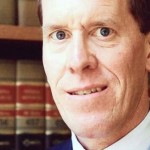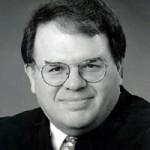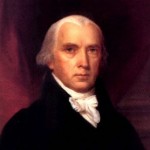On December 27, Federal Judge William Pauley, of the Southern District of New York, admitted everything that, on December 16th, Judge Richard Leon indicated was wrong with the National Security Agency’s Data Collection and Surveillance[1] program and, unlike Judge Leon, decided the program was reasonable, lawful and constitutional.
Pauley Admits the Dangers to Liberty, but Trusts the Government
While Judge Leon courageously decided in favor of the Constitution, the Fourth Amendment and the principle beneficiaries of the Constitution, the American people, Judge Pauley came down in favor of the government. Judge Pauley ruled the NSA program is legal and constitutional. Even in coming to that conclusion Judge Pauley admitted about the program:
“This blunt tool only works because it collects everything. Such a program, if unchecked, imperils the civil liberties of every citizen. Each time someone in the United States makes or receives a telephone call, the telecommunications provider makes a record of when, and to what telephone number the call was placed, and how long it lasted. The NSA collects that telephony metadata. If plumbed, such data can reveal a rich profile of every individual as well as a comprehensive record of people’s associations with one another.”
With that introduction of the dangers to the freedom of American citizens posed by the program, Judge Pauley indicates that it’s best to trust the government[2] when Congress has authorized the government to: collect the data of every phone call made in the United States by seeking secret orders from a secret federal intelligence court.
Pauley: People Provide Information to do Business, “REASONABLE” for Government to Take It
Pauley relies upon the “reasonableness” [3] of the government program. His opinion contains a curious reference to a citizen’s decision to voluntarily surrender personal data to a corporation in a business transaction.[4] Apparently because a citizen decides to part with data in a business dealing it is “reasonable” a citizen would approve of the government surreptitiously collecting personal information about a citizen without their permission or a warrant as the Fourth Amendment requires: “particularly describing the place to be searched, and the persons or things to be seized.”
Leon: James Madison Would be “Aghast”
Judge Leon, in discussing the NSA program, referred to “general warrants” [5] an abuse of the British crown that was a major factor in fomenting the American Revolution. Judge Leon thinks the program would leave the father of the Constitution, James Madison “aghast”. Leon describes the cell-phone culture, and the belief by society that the data, though collected through a business transaction should be secure in the hands of the collector.
Pauley: Despite Oversight NSA Program Violations Take Place, Forgivable Human Error
Judge Pauley essentially indicates that Americans are to trust the government while its “bulk telephony metadata collection program vacuums up information about virtually every telephone call to, from or within the United States.”[6]
Judge Pauley refers to “executive oversight” of the program, while it is the executive branch running the program. He also refers to judicial and congressional oversight, all of which is done in secret. Despite all the oversight, Judge Pauley admits with a benign view that there “… have been unintentional violations of guidelines … from human error…”
Leon: Even Minimal Loss of Constitutional Freedom an Irreparable Injury
Contrast Judge Pauley’s view of a benevolent government committing apparently forgivable errors with Judge Leon’s statement: “It has long been established that the loss of constitutional freedoms, ‘for even minimal periods of time unquestionably constitutes irreparable injury.’”
Two Approaches, Two Differing Outcomes to NSA Surveillance Program
The Leon and Pauley decisions on the constitutionality could not possibly be more different. Judge Leon approached from the position that the government exists for the purpose of protecting the freedom of the citizens and that the Constitution limits the government from interfering with that freedom. Judge Pauley approached from the thought that government knows best for the citizens and they are best protected by the government benevolently looking after the interests of the people in secret.
One approach trusts the people, the other trusts the government. While higher courts in the federal system will provide their opinions on the NSA surveillance program, nothing will change the fact that Judge Leon remained true to the Constitution, and Judge Pauley remained true to the government the Constitution was intended to control.
The Importance of Judicial Appointments and Composition of the Senate
Ratification of the 17th Amendment and direct popular election of Senators changed the dynamic of the federal courts. Senators that were appointed by state legislatures, as the original Constitution provided, would consent primarily to presidential judicial appointments that respected a constitutionally limited federal government.
After the 17th Amendment, with Senators directly elected to the federal government and without a duty to the states or the legislatures, will consent to presidential appointments of federal judges with expansive view of the federal government power that endangers the freedoms of the American people.
17th Amendment: Why a Judge Leon is Rare and a Judge Pauley is Common
That change explains why a Judge Leon willing to limit federal power is so rare and a Judge Pauley willing to approve expansive federal power is so common. While they often work in anonymity to the general public, the men and women who are federal judges have an enormous impact on our lives.
Listen to Discussion on Constitutionally Speaking
Listen to the discussion with Attorney Max Macoby on Constitutionally Speaking about the NSA and the Fourth Amendment:
https://soundcloud.com/david-shestokas/constitutionally-speaking-4th
__________________________________________________________________________
[1]Judge Leon’s opinion provides a full description of the program. The description involves both the data collection process and the legal process involved in the secret courts.
[2]Judge Pauley suggests that the program “might” have prevented 9/11. He also refers to several alleged “successes” of the program including one David Headley, who was a US Drug Enforcement Agency informant as far back as 2001, long before the program was in place.
[3]Judge Pauley relies upon the legal fiction of the “reasonable” man. This contrasts directly with Judge Leon’s reliance on the degree of privacy from the government that existed when the Fourth Amendment ratified.
[4]This comparison calls out for reference to Judge Leon’s Footnote 60 on page 55, talks of Americans growing up in a post-cell phone, post-Smith, post-PATRIOT ACT age having no idea of American traditions and believing that government monitoring of their lives is normal. Comparing a voluntary business transaction to government monitoring is the kind of false comparison that misleads Americans about the traditions of freedom.
[5]The “general warrants” also included “writs of assistance” which required “loyal subjects of the king” to “assist” the king’s agents in their searches. There’s an eerie resemblance to the required assistance of phone service providers like Verizon, AT&T and Sprint in the government data collection program.
[6]Pauley Opinion, page 52









[…] three other federal trial courts on page 63 of his opinion. Judge William Pauley would take a nearly opposite view of the NSA program less than two weeks […]